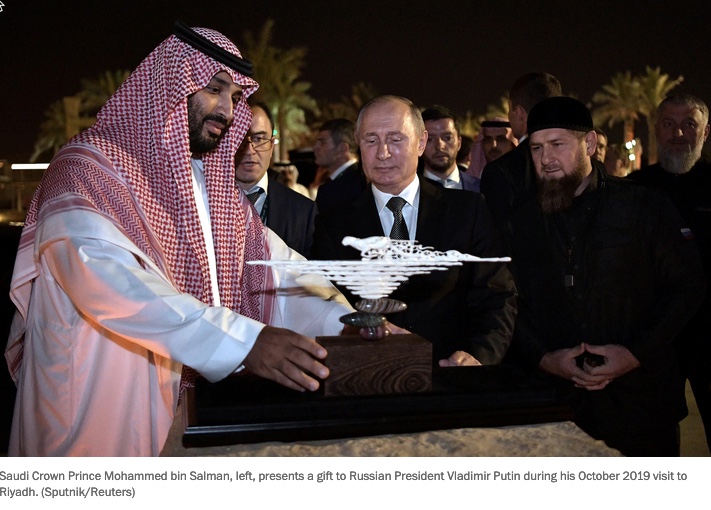ON THE surface, the oil price war disrupting the global economy pits the world’s third-largest producer, Russia, against the second, Saudi Arabia. Make no mistake about it, however: The ultimate loser — and a probable intended target — is the world’s No. 1 crude producer, the United States. After years of stewing over his country’s loss of market share to the burgeoning U.S. shale industry, and the sanctions Washington has put on Russia’s oil industry in response to Moscow’s various abuses in international affairs, President Vladimir Putin has decided to fight back, in the form of unrestrained production that threatens to bankrupt many highly indebted U.S. companies.
The back story to Mr. Putin’s move is a stagnation in global consumption that has turned into an outright downturn due to the novel coronavirus. As de facto chief of the Organization of Petroleum Exporting Countries (OPEC), Saudi Arabia tried to persuade Mr. Putin to cut its production in tandem with the cartel, so as to prop up prices for them all. When he refused, Saudi Crown Prince Mohammed bin Salman countered by declaring his country would run its industry at maximum output for the foreseeable future. So far, Russia has not bowed to the pressure, partly because Moscow can balance its budget at a much lower price of oil than Saudi Arabia can, and partly because Mr. Putin smells an opportunity to get even with the United States. Russia’s oil-exporting partners Venezuela and Iran, already reeling from political unrest and the coronavirus, respectively, are likely to take politically destabilizing hits as a consequence, but apparently those are lower priorities for Moscow.




